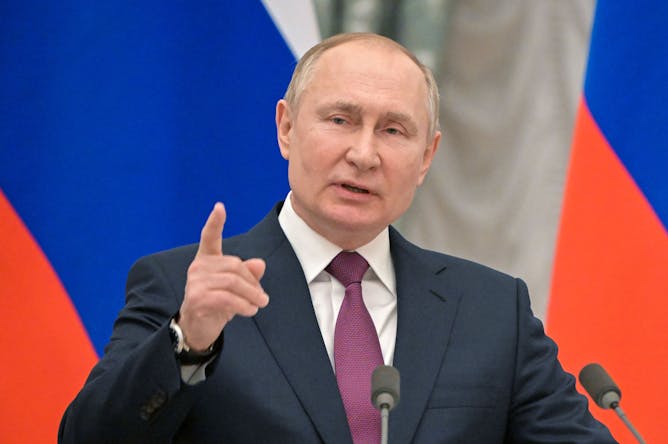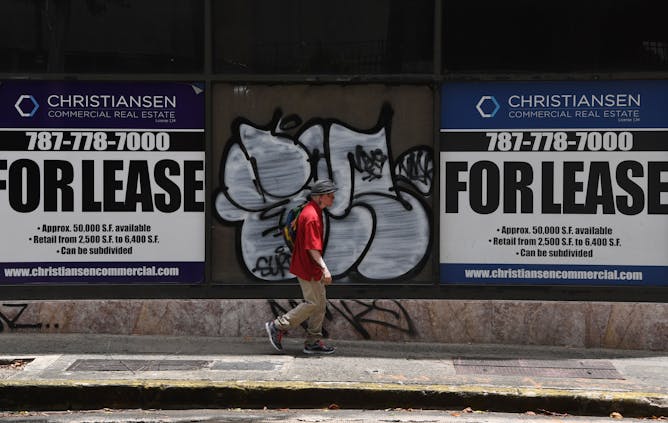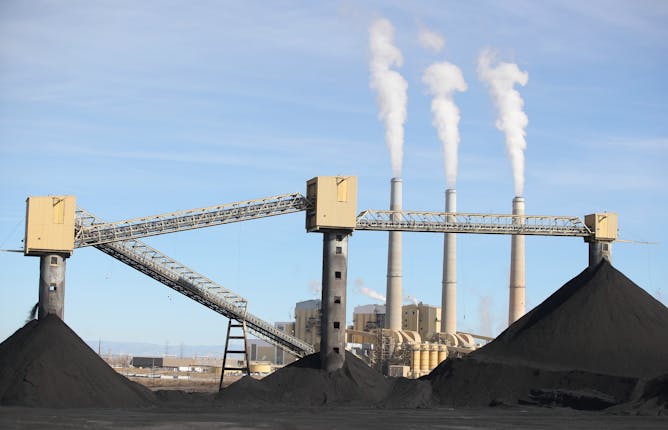|
For more than three months, the potential for a Russian invasion of Ukraine has kept the world on edge. To little surprise, Russian President Vladimir Putin has downplayed the amassing of an estimated 150,000 troops on the Ukrainian border.
Russian history scholar Ronald Suny from the University of Michigan asks a provocative question: What if an invasion was never Putin’s intention? “One interpretation,” Suny writes, “is that President Putin mobilized his soldiers and sailors primarily to force a dialogue with the West over what the spheres of influence and interest in Eastern Europe should be.”
That question could not be more timely, given the decline of the Russian economy and the potential financial devastation promised by the U.S. and NATO from severe economic sanctions if Putin invades.
In other stories, Arie Perliger, a professor of criminology and justice studies at UMass Lowell, looks at the sharp rise in the U.S. of anti-Asian violence during the pandemic.
|

What he wants. What he really, really wants?
Mikhail Klimentyev/Sputnik/AFP via Getty Images
Ronald Suny, University of Michigan
A scholar of Russian history breaks down what Putin’s aim might be in threatening military invasion, and why that might backfire.
|

A Puerto Rican man passes buildings for lease in San Juan, Puerto Rico, on May 16, 2017.
Mark Ralston/AFP via Getty Images
Carlos A Suárez Carrasquillo, University of Florida
Puerto Rico has reached an agreement to partially settle its historic bankruptcy crisis. But public cuts to education and health care are unlikely to ease, creating ongoing challenges for Puerto Ricans
|

Coal piles outside of PacifiCorp’s Hunter power plant in Castle Dale, Utah.
George Frey, AFP, via Getty Images
Albert C. Lin, University of California, Davis
West Virginia v. EPA could be the opportunity that conservative justices have been seeking to curb federal power.
|
|
|
-
Arie Perliger, UMass Lowell
A new analysis of crime data shows that anti-Asian violence, targeting people of Asian descent and their property, rose sharply during the pandemic.
-
Henry L. Chambers Jr., University of Richmond
Alabama will be allowed to keep a congressional map that critics say disadvantages Black voters. That does not bode well for 2022 midterms, argues a law scholar.
-
Bill Kovarik, Radford University
Under the Sullivan standard, a public official has to prove that there was ‘actual malice’ in defamation cases. That could be challenged in the Supreme Court.
-
Frederick Gooding, Jr., Texas Christian University
With a few notable exceptions, public monuments across the United States are overwhelmingly white and male. A movement is slowly growing to tell a more inclusive history of the American experience.
-
Jim Krane, Jones Graduate School of Business at Rice University; Mark Finley, Rice University
The social cost helps regulators factor in harm from climate change when they consider new rules and purchases, like buying electric- vs. gas-powered trucks for the Postal Service.
-
Matthew Jordan, Penn State; Sydney Forde, Penn State
When an attention-based media system always allows the noise-makers to dominate the conversation, it becomes impossible to hear the full range of voices and views.
-
Ryan Haddad, University of Maryland
The Biden administration hopes the threat of harsh sanctions from a united West will deter Putin from invading Ukraine. But Russia has a long history of using energy to divide the US and Europe.
|
|